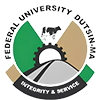GROWTH PERFORMANCE AND NUTRIENT DIGESTIBILITY OF YANKASA RAMS FED VARYING RATIO OF GROUNDNUT HAULMS AND DIGITARIA SMUTSII HAY (WOOLY FINGER GRASS)
DOI:
https://doi.org/10.33003/japes.2025.v1i2.29-36Keywords:
Digitaria smutsii hay, groundnut haulm, growth performance, nitrogen utilization, nutrient digestibilityAbstract
This study evaluated the growth performance, nutrient digestibility, and nitrogen utilization of Yankasa rams fed diets containing varying ratios of groundnut haulms and Digitaria smutsii (woolly finger grass) hay. Six (6) Yankasa yearling rams of an average body weight of 17 kg were assigned to two dietary treatments: 75% groundnut haulm and 25% Digitaria smutsii hay (T1), and 50% groundnut haulms and 50% Digitaria smutsii hay (T2). Each diet was offered at 2% of body weight, with an additional concentrate supplement fed at 1% of body weight, in a completely randomized design (CRD). Key parameters measured included total live weight gain, daily weight gain, dry matter intake, nutrient digestibility, and nitrogen retention. The data collected were subjected to One-Way Analysis of Variance (ANOVA) using the General Linear Model Procedure (GLM) of Statistical Analysis System (SAS). Results indicated that animals on the T1 diet showed significantly higher (P<0.05) growth rates, nutrient digestibility, and nitrogen retention compared to those on the T2 diet, using a Duncan's Multiple Range Test. The increased proportion of groundnut haulm in T1 likely contributed to the enhanced crude protein and nitrogen-free extract intake, supporting improved performance outcomes. This study highlighted the potential of a higher groundnut haulm ratio in optimizing feed utilization and growth in small ruminants, offering a viable nutritional strategy for regions with seasonal feed shortages.





